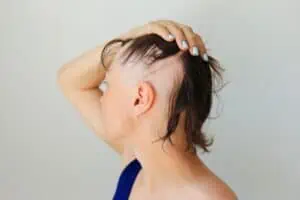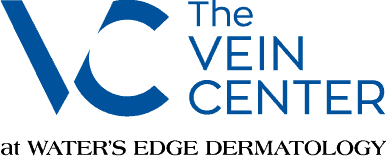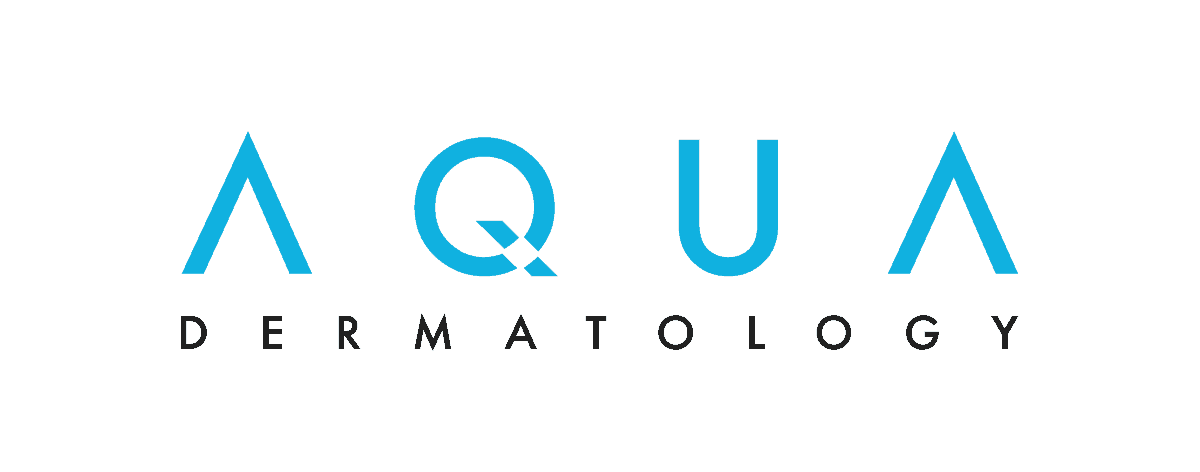
Medically reviewed by Daniel Gutierrez, PA-C
Alopecia areata typically isn’t physically painful, but the emotional effects of this autoimmune disease can be devastating. The main symptom, patchy or complete hair loss, often makes people embarrassed and self-conscious, and it can be challenging to treat. Now there’s a new drug for alopecia areata from Pfizer, approved by the FDA, called Litfulo (ritlecitinib). It’s an oral medication that can help people ages 12 and up with severe alopecia areata regrow hair—and regain confidence.
“Litfulo is a game-changer for alopecia areata patients, particularly those in their teens,” said Daniel Gutierrez, PA-C, of Water’s Edge Dermatology. “Before Litfulo, the only oral alopecia areata treatment for severe disease was approved for people 18 and older, but most alopecia areata patients are much younger than that.”
With Litfulo, severe alopecia areata in children 12 and older can be treated orally.
Challenges in alopecia areata treatment
Living with alopecia areata can be difficult for anyone. The condition occurs when the immune system mistakenly attacks the hair follicles, leading to inflammation that causes hair loss. Most people who have alopecia areata develop a few circular bald patches, and in most cases the hair grows back without treatment, though it may fall out again later. Dermatologists can encourage hair regrowth by prescribing treatments such as topical corticosteroids and a 5% minoxidil solution.
For people with severe alopecia areata, however, the effects can be more disfiguring, and stronger treatments are required. Until now, the only oral medication available was Olumiant (baricitinib). While effective—some people in clinical trials experienced hair regrowth after 36 weeks—Olumiant is approved for adults only.
“The most common alopecia areata treatment for teens has been multiple corticosteroid injections in the scalp administered once a month,” Gutierrez explained. “But teens and parents don’t necessarily volunteer for uncomfortable treatments, even for hair loss.” Patients who do opt for injections don’t always keep up with their appointments, which limits the effectiveness, he added.
How Litfulo works
Like Olumiant, Litfulo is a Janus kinase (JAK) inhibitor, a type of immune-modifying drug used to treat certain inflammatory diseases. It works by binding with certain proteins on immune cells, called receptors. This blocks signals that direct the cells to attack the hair follicles.
Results vary, but Litfulo can make a major difference for some patients. In clinical trials, nearly 25% of adults and teens taking the drug experienced hair growth that covered 80% or more of their scalp in six months. All the patients started with 50% or more scalp hair loss, and some had alopecia totalis (complete loss of scalp hair) or alopecia universalis (complete loss of scalp and body hair).
Litfulo side effects
The most common side effects of Litfulo include headache, diarrhea, itching, dizziness and eczema. Like other immune-modifying drugs, Litfulo can lower the body’s ability to fight infections and slightly increases the risk for certain cancers. It also increases cardiovascular risks for people ages 50 and over who have at least one heart disease risk factor.
That said, Litfulo may be safer than other JAK inhibitors because it targets one specific receptor. “This level of precision allows the medication to have fewer potential side effects,” said Gutierrez. Your dermatologist will discuss the risks with you.
If you’re taking another JAK inhibitor, a biologic drug, cyclosporine or other strong immunosuppressant drug, your dermatologist won’t recommend Litfulo. It is also not appropriate for anyone who is breastfeeding or has severe liver problems. Your doctor will order blood tests to check for medical issues that can make you a poor candidate for Litfulo, including platelet count abnormalities.
More hair, better mental health
Large bald patches in the hair are more than a cosmetic issue. Successfully treating severe alopecia areata could potentially reduce the psychological effects of the disease. In adults, these include a higher risk of depression, anxiety, attention deficit hyperactivity disorder (ADHD) and certain psychotic disorders. Children and teens with alopecia areata are vulnerable to bullying, and in one small study, more than half of participants ages 12 to 19 reported that their hair loss made them limit their activities.
For people with the most hair to gain, the new FDA-approved drug for hair loss offers a chance at fewer, smaller bald patches—and a better mental outlook.
Written by Jessica Brown, a health and science writer/editor based in Nanuet, New York. She has written for Prevention magazine, jnj.com, BCRF.org, and many other outlets.





